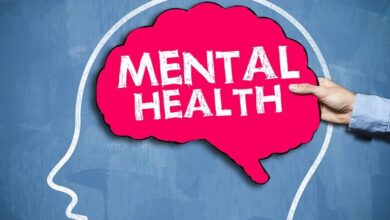Residential Mental Health Treatment: A Path to Lasting Recovery

Mental illnesses like depression, anxiety, bipolar disorder, and PTSD can pose a grave threat to one’s quality of life. For some mentally ill patients, simple outpatient therapy, or medicational therapy might not be sufficient towards achieving long term stability. This is where residential mental health treatment comes in: fully supportive and immersive services geared towards deep recovery, healing, and treatment.
If you or someone you care for suffers from debilitating mental health issues, these programs might offer the solution needed to regain control over their life. This guide will cover the various aspects of residential treatment, its workings, its advantages as well as how to pick the most suitable program for holistic treatment.
What Is Residential Mental Health Treatment?
Residential mental health treatment refers to an intensive, 24/7 inpatient program that is over in a routine fashion for patients that are unable to cope with standard outpatient therapy. Unlike outpatient treatment programs where a patient stays at home and goes to therapy sessions, residential treatment allows for complete immersion: patients are put in a systematized and highly supervised setting from which they are able to get around the clock assistance, therapy, and medication.
Who Might Require Residential Mental Health Treatment?
This form of treatment is suitable for individuals having the following challenges:
✔ Severe depression or anxiety that hasn’t improved through outpatient therapy.
✔ Stabilized Bipolar disorder, Schizophrenia or other Psychotic disorders.
✔ PTSD with recurring self-harming episodes or suicidal ideation.
✔ Dual diagnosis substance abuse requiring integrated care.
✔ Self-harming or suicidal ideation requiring intensive monitoring.
✔ Long term mental illness that affects emotional functioning and interpersonal relationships.
If you or someone you love is facing persistent mental health problems that hinders daily functioning, “residential mental health treatment” can help provide the care and support for long-term treatment success.
Key Benefits of Residential Mental Health Treatment
1.Supervision and Support Monday-Sunday
A step forward from outpatient therapy where one continues to struggle between sessions, residential treatment has a guaranteed positive outcome because there is always professional help available. This means there is help available for crises and monitoring of progress.
2.More Therapy Sessions and Counseling
✔ Individual Therapy – Licensed therapists work with patients on their mental health individually in order to identify specific issues that need the most attention.
✔ Group Therapy – An encouraging peer support meeting during which patients submit to the “patient-led” process of group psychotherapy that encourages collaborative work.
✔ Cognitive Behavioral Therapy (CBT) – Changing a person’s automatic negative thoughts.
✔ Dialectical Behavior Therapy (DBT) – Focuses on Emotional Distress and Impulsivity Management Techniques.
3.Management of Medication and Psychiatric Supervision
Most patients require medication to control their present symptoms. In an inpatient environment, psychiatrists attend to their prescriptions in great detail, ensuring the patient does not overdose or underdose while also modifying the treatment plan as appropriate.
4.Set Daily Routine
One major positive aspect of residential care for mental illness is the ability to develop healthy habits and routines, which can greatly enhance the patient’s wellness. Daily rounds include:
- Morning meditation or sleep exercises
- Therapy and skill development classes
- Yoga or fitness sessions
- Journaling and reflection exercises
- Meal planning and nutrition counseling
Individuals develop coping mechanisms and emotional regulation and are able to achieve a balance in their life through such an environment.
5. Environment that is Free from Threat and Nurturing
Patients suffering from mental disorders often have a negative home environment to deal with, toxic relationships or some external factors that can prove to be detrimental to positive development. A residential treatment center for mental health provides an area that is free from interference or negativity and allows for recuperation.
6. Other Forms and Alternative Therapies
Art is one example, and there are many other therapies that fall under creative treatment. Many residential treatment facilities now incorporate these along with the standard therapeutic treatment.
- Equine-Assisted Therapy – Emotional healing through therapeutic interaction with horses.
- Meditation and Breathwork – Specialty instructions for managing stress.
- Music Therapy – Use of rhythmic and non-rhythmic sounds to enhance emotional health.
How Long Does One Stay In Residential Mental Health Treatment?
With every person’s case being unique, the severity of one’s conditions is equally unique, and therefore the duration of residential treatment varies from person to person. It tends to follow these common guidelines:
- Short-term treatment programs (30 days) – Programs intended for crises management and symptom stabilization.
- Medium-term treatment programs (60-90 days) – Programs that target individuals who undergo intensive therapeutic intervention along with skill construction.
- Long-term treatment programs (6 months or more) – Programs best recognized for chronically mentally ill patients or those suffering from dual diagnosis
After conducting a thorough analysis with a mental health expert, you will be able to decide the best treatment and its duration that works for you.
Selecting a Residential Mental Health Treatment Program
1.Accreditation and Licensing
Make sure that the treatment center has a license and accreditation from national bodies such as:
✔ The Joint Commission (JCAHO)
✔ Commission on Accreditation of Rehabilitation Facilities (CARF)
2. Specialized Treatment Programs
Check if the facility specializes in your condition, which can include:
✔ Depression, anxiety, PTSD
✔ Bipolar disorder and schizophrenia
✔ Trauma related disorders
✔ Coexisting substance abuse and mental illness
3. Experienced and Qualified Staff
A high-quality residential mental health treatment facility ought to have an experienced multidisciplinary staff composed by:
✔ Psychiatrist and psychiatric nurse
✔ Licensed therapist and counselor
✔ Nutritionist and wellness coach
✔ Holistic practitioners (yoga, fitness, meditation teachers)
4. Comprehensive Aftercare Planning
Look for facilities that include aftercare services because successful recovery does not stop when one leaves residential treatment. Aftercare services may include:
✔ Outpatient therapy and counseling
✔ Relapse prevention strategies
✔ Community support groups
What to Expect After Residential Mental Health Treatment
Moving on from residential treatment requires support for when you return to daily living. Lots of programs have step-down options, including:
✔ Partial Hospitalization Programs (PHPs) – Programs which provide outpatient care where you’re still offered therapies.
✔ Intensive Outpatient Programs (IOPs) – Helps integrate therapy while working or doing daily activities.
✔ Sober living environments and supportive housing – Available for those recovering from dual diagnosis substance use disorders.
A comprehensive aftercare plan helps ensure that patients will be able to continue their recovery treatment with the necessary amount of confidence.
Final Thoughts: Is Residential Mental Health Treatment Right for You?
If you or someone close to you has been suffering from dire symptoms pertaining to their mental health, professional intervention should be sought out. Those seeking help would benefit from the structure and support provided within a residential setting, as it would facilitate their engagement with psychotherapy, medical treatment, and other supportive services towards achieving a sustainable resolution.
Key Takeaways:
✅ 24 hour supervision, medical support, and check-ups are provided.
✅ Emotional healing is addressed through individual and group therapy.
✅ Holistic and medication treatment approaches are available.
✅ Long-term plans and routines are put in place to promote stability.
✅ Aftercare is provided to facilitate safe resettlement into normal life.
Take the First Step Toward Recovery
If you or a known individual requires residential mental health intervention, do not postpone any longer. As the goal of the residential intervention is to ensure the individual has the support they need for optimal well-being through comprehensive care, the longer it is sought you risk the stability and wellness of the patient.
Contact a reliable residential treatment center now, and take your first step towards a healthier tomorrow.




